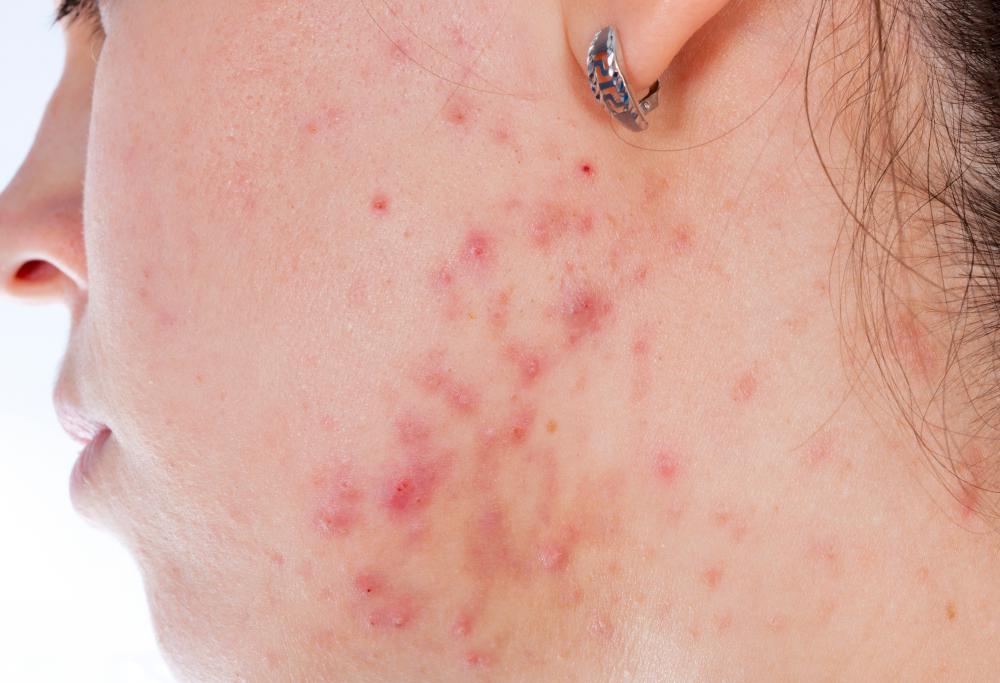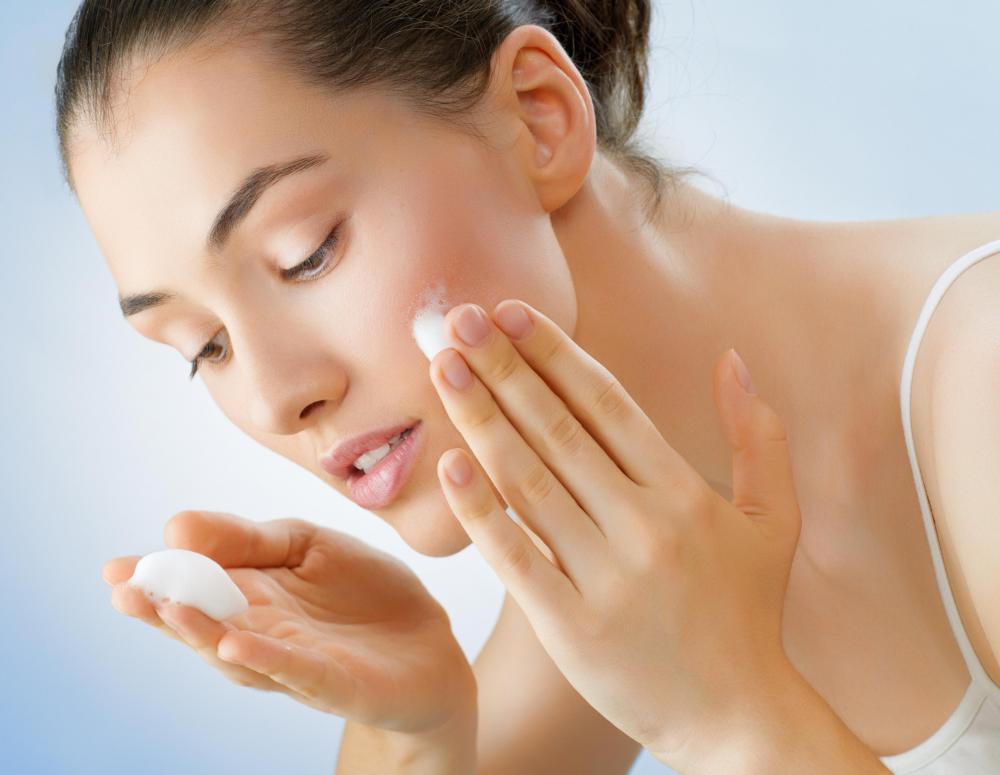At BeautyAnswered, we're committed to delivering accurate, trustworthy information. Our expert-authored content is rigorously fact-checked and sourced from credible authorities. Discover how we uphold the highest standards in providing you with reliable knowledge.
How do I Choose the Best over-The-Counter Chemical Peel?
Choosing the best over-the-counter chemical peel is important because it might mean the difference between a great end result and a chemical burn. In order to choose the best over-the-counter chemical peel, you should know your skin type, what your desired result is and the basics of the different acids and enzymes used in many chemical peels. Although it is important to use caution when deciding which over-the-counter chemical peel you would like to buy, a little bit of prior research and education on your part might help produce beautiful results in the long run.
The first piece of information you must be fully aware of is your skin type. Many chemical peels treat a specific skin type, so using the wrong one might mean unwanted results. A chemical peel's packaging usually will state which type of skin it is meant to treat. Terms generally used to describe skin types are "normal," "oily" and "combination." Some chemical peels are supposed to treat all skin types, though caution should be used when using this type if you have sensitive skin.

Different skin issues require an over-the-counter chemical peel that penetrates different depths, so knowing whether you want to treat acne, remove age spots, even out skin tone or minimize fine lines and wrinkles is important. This will determine which type of over-the-counter-chemical peel you purchase. Chemical peels designed to treat acne or give the skin a more glowing appearance will generally only slough off dead skin from the top layer of skin. Minimizing fine lines and wrinkles requires the peel to go much deeper, so stronger acids and a more rigorous peel are used.

Chemical peels generally use acids to bring about the desired result. Acne peels make use of salicylic acid to treat acne, lactic acid to penetrate just the epidermis and trichloroacetic acid (TCA) to penetrate deep to remove fine lines and wrinkles. Other acids and enzymes are used to treat many other conditions, so it is best to research the ingredients in the peel you are thinking of purchasing.

As with many cosmetic products, there really is no way to completely predict how an over-the-counter chemical peel will react after it has been placed on your skin. Research will help weed out the peels that should not be used on your face. After you have decided upon a few that seem to be good fits, testing a hidden patch of skin might help determine how the product will treat your face. Try placing a bit behind an ear to get an idea of how it will look on your face.
AS FEATURED ON:
AS FEATURED ON:















Discussion Comments
@feruze-- Yes, I've used an TCA chemical skin peel at home. I didn't use it for acne blemishes, but rather for wrinkles. I think it works equally well for both.
If you get one make sure that it has a moisturizer in it. These usually come in sets and will have several steps to the process. One of the steps should be a moisturizer.
TCA peels are kind of invasive. Recovery from TCA takes longer than other peels like glycolic peels. It's normal to have some redness while your skin recovers. But if you get one that is not very strong (15-25% at most) and that moisturizes, your skin will not be as irritated.
Has anyone here tried a TCA chemical peel? Does it work? I want to try it for acne blemishes.
I bought a home chemical peel product from the pharmacy last week. The main ingredient in it is beta-hydroxy acid (BHA) which is a type of chemical exfoliant.
I don't think that it's a bad product but I had bad results because I used it too much. The product label said to use it 1-2 times a week and I used it twice. But I underestimated its strength. After two uses in one week, I developed irritation and redness on my face. I also have several weird bumps on my cheek.
Other people might not have an issue using this twice a week, but my skin did not react well to it. I think my skin is too sensitive for this type of peel.
I don't know about other types of chemical peels, but BHA peels clearly shouldn't be used frequently. I'm actually scared to use it again.
Post your comments